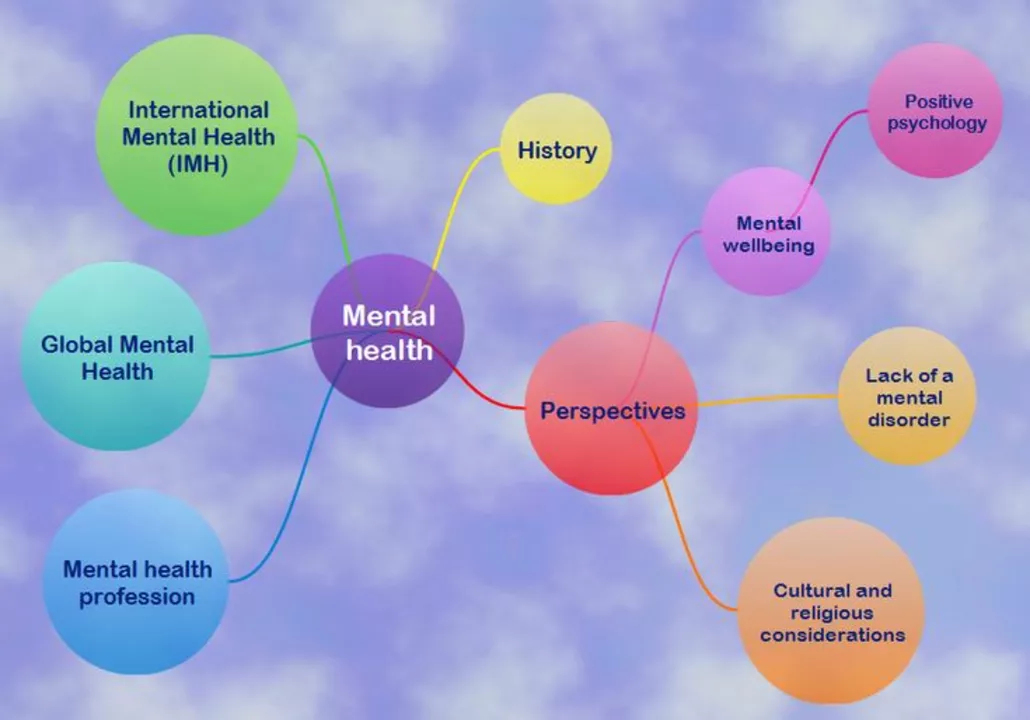An Introduction to Indapamide and Mental Health
Indapamide is a diuretic medication primarily prescribed for the treatment of high blood pressure and fluid retention in patients with heart failure. While its physical benefits are well-established, the impact of this medication on mental health has garnered attention in recent years. In this article, we will delve into the various ways Indapamide may affect mental health, both positively and negatively.
Reducing Anxiety and Depression
High blood pressure and heart failure can take a significant toll on a person's mental wellbeing. Anxiety and depression are not uncommon in patients with these conditions, often due to the chronic nature of their illness and the impact it has on their daily lives. Indapamide's ability to effectively manage high blood pressure and associated symptoms can lead to improvements in mental health by reducing the burden of the illness.
Additionally, some studies have suggested that Indapamide may have a direct positive effect on mood. It has been hypothesized that the drug's diuretic action could increase the availability of certain neurotransmitters in the brain, such as serotonin and norepinephrine, which are known to regulate mood. However, more research is needed to confirm this hypothesis and determine the extent of these potential benefits.
Potential Cognitive Decline
While Indapamide has shown promise in alleviating some mental health concerns, it is important to remain aware of potential drawbacks. Some research has suggested that long-term use of diuretics, including Indapamide, may be associated with cognitive decline. A study published in the Archives of Internal Medicine found that the use of diuretics was linked to a higher risk of developing Alzheimer's disease.
It is essential to note that this study did not prove a direct causal relationship between diuretics and cognitive decline. Further research is necessary to determine whether this association is due to the medications themselves or other factors, such as underlying health conditions or lifestyle habits. Nonetheless, it is crucial for patients taking Indapamide to be aware of this potential risk and discuss it with their healthcare provider.
Electrolyte Imbalances and Mood
Indapamide's primary function is to increase urine production, which can lead to a loss of essential electrolytes, such as sodium and potassium. These electrolytes play a vital role in maintaining proper nerve and muscle function, as well as regulating mood and cognitive function. An imbalance in electrolyte levels can result in a variety of symptoms, including fatigue, irritability, and even depression.
It is essential for patients taking Indapamide to monitor their electrolyte levels regularly and work with their healthcare provider to address any imbalances. This may involve adjusting the dosage of the medication, taking supplements, or making dietary changes to maintain optimal mental health.
Managing Side Effects
Like any medication, Indapamide can cause side effects, some of which may have an impact on mental health. Common side effects include dizziness, headache, and fatigue, which can contribute to feelings of irritability, anxiety, or depression. It is important for patients to be aware of these potential side effects and to discuss any concerns with their healthcare provider.
Managing the side effects of Indapamide may involve adjusting the dosage, switching to a different medication, or employing coping strategies such as relaxation techniques or engaging in regular physical activity. By being proactive in addressing these side effects, patients can minimize their impact on mental health.
Importance of Regular Checkups and Monitoring
As with any medication, it is crucial for patients taking Indapamide to maintain regular checkups with their healthcare provider. This allows for close monitoring of both physical and mental health, ensuring that any potential issues are identified and addressed promptly. It is also an opportunity for patients to discuss any concerns they may have about their mental wellbeing and receive guidance on the best course of action.
Regular checkups also enable healthcare providers to monitor the efficacy of Indapamide and make any necessary adjustments to the treatment plan. By working closely with their healthcare team, patients can optimize their mental health while managing their high blood pressure or heart failure.
Conclusion
In summary, Indapamide can have both positive and negative impacts on mental health. While it may help alleviate anxiety and depression by managing high blood pressure and associated symptoms, it can also contribute to cognitive decline and mood disturbances. It is essential for patients taking Indapamide to be aware of these potential effects, maintain regular checkups, and work closely with their healthcare provider to optimize their mental health and overall wellbeing.


Chris Remo
May 9, 2023 AT 05:33Now I just nap more. Which is fine.
Khanyisa Mhlongo
May 9, 2023 AT 13:15Also, I cried during a grocery store commercial. It was beautiful.
KJ Miller
May 9, 2023 AT 13:49It’s not just about lowering numbers-it’s about giving someone back their peace. And that’s worth more than any lab report.
Crystal Magnant
May 10, 2023 AT 05:43🫠
Danie Joy
May 10, 2023 AT 13:10Katherine Stapp
May 10, 2023 AT 18:45Also, I heard the WHO is hiding the truth. #BuyAmericanMedicine
Frank De Silva
May 11, 2023 AT 01:35And the fact that you’re attributing mood changes to neurotransmitter shifts without a single controlled trial is… quaint.
Stephanie Bryant
May 11, 2023 AT 18:31Check potassium first. Always. I’ve seen people feel 100% better after a simple K+ pill. Seriously.
Claire Battista
May 12, 2023 AT 07:04It’s not just about the pill-it’s about the person behind it. That matters.
Erin DeGroot
May 13, 2023 AT 03:54It is not causation, but it is a red flag that warrants clinical vigilance.
Drashti patel
May 13, 2023 AT 10:43Now he sits in the garden and talks to the birds. I think he’s happier. Maybe the medicine took his worries with the urine?
Carolyn Cameron
May 13, 2023 AT 20:07sarah basarya
May 14, 2023 AT 17:47Samantha Taylor
May 15, 2023 AT 03:51Joe Langner
May 16, 2023 AT 03:13It’s a tradeoff. I’d rather be dizzy than confused.
Kaitlin Crockett
May 16, 2023 AT 04:51Chris Remo
May 16, 2023 AT 06:54Tracy Blake
May 16, 2023 AT 16:10